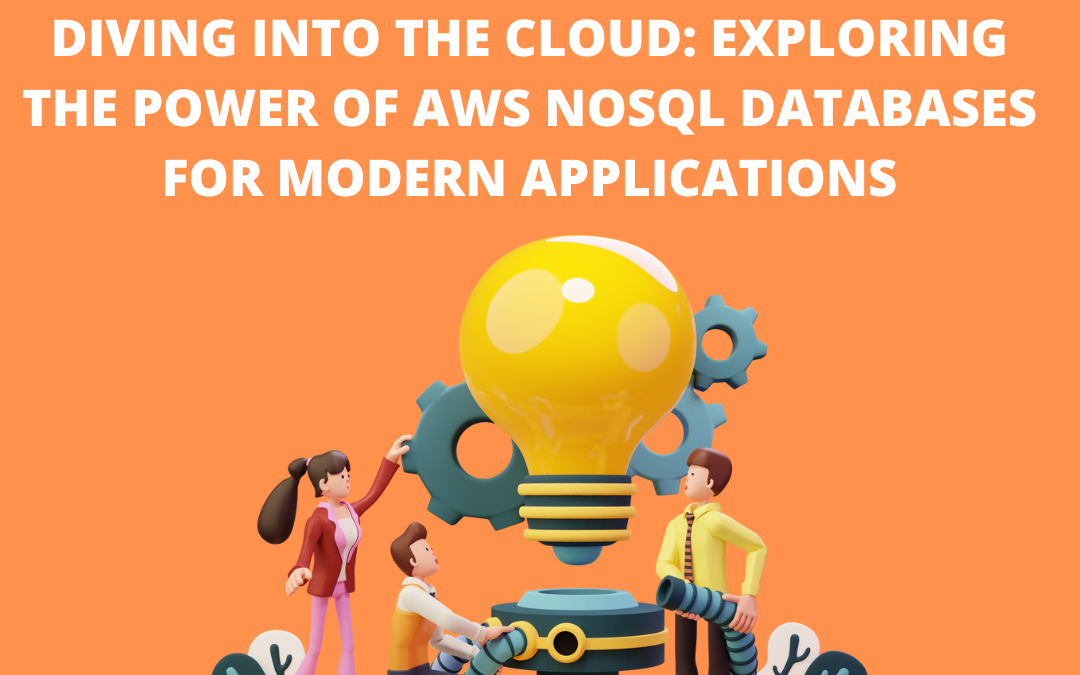In the rapidly evolving landscape of modern applications, there is an increasing demand for scalable, flexible, and high-performance databases. Businesses are striving to meet the growing expectations of users, but traditional relational databases often face limitations in handling the massive volumes of data generated by contemporary applications. This is where aws nosql db come into play, providing a robust solution to meet the dynamic needs of modern application development.
The Emergence of NoSQL Databases:
Traditional relational databases adhere to a structured schema that enforces a rigid data model, which makes them less adaptable to the unpredictable and constantly changing data structures of today’s applications. On the other hand, NoSQL databases offer a more flexible and scalable approach to data storage. AWS, a leading provider of cloud computing services, offers a suite of NoSQL databases that cater to various use cases, including Amazon DynamoDB, Amazon DocumentDB, and Amazon Keyspaces.
Amazon DynamoDB:
At the forefront of AWS NoSQL databases lies Amazon DynamoDB, a fully managed and serverless database that effortlessly scales to handle any workload. Its versatile key-value and document data model makes it highly suitable for a wide range of applications, spanning gaming, e-commerce, IoT, and real-time analytics. With automatic scaling, exceptional low-latency performance, and robust built-in security features, DynamoDB empowers developers to concentrate on application development, free from concerns about database management.
Amazon DocumentDB:
For those well-acquainted with MongoDB, Amazon DocumentDB offers a compatible and fully managed MongoDB service. It enables developers to leverage the flexibility of a document database while enjoying the reliability, scalability, and security of AWS. This compatibility streamlines the migration of existing MongoDB applications to the cloud, ensuring a seamless transition without compromising performance.
Amazon Keyspaces:
Tailored for applications that require Apache Cassandra-compatible databases, Amazon Keyspaces provides a scalable and highly available solution. With features such as automatic backups, point-in-time recovery, and encryption at rest, it simplifies the management of Cassandra workloads in the cloud. Developers can confidently build globally distributed applications that demand low-latency access to data, all while eliminating the operational overhead associated with traditional Cassandra deployments.
Benefits of AWS NoSQL Databases:
- Scalability: NoSQL databases on AWS exhibit horizontal scalability, enabling seamless performance even with expanding workloads, ensuring optimal performance.
- Flexibility: The schema-less nature of NoSQL databases empowers developers to adapt to evolving data requirements without the complexities of intricate migrations.
- Performance: Leveraging low-latency access and automated scaling, AWS NoSQL databases empower applications to deliver high-performance user experiences.
- Managed Services: AWS handles the operational aspects of database management, allowing developers to focus on code development and feature building, rather than infrastructure management.
Getting Started with AWS NoSQL Databases:
To leverage the capabilities of AWS NoSQL databases, developers can effortlessly provision, configure, and scale databases using the AWS Management Console, AWS Command Line Interface (CLI), or programmatically through SDKs. With extensive documentation, tutorials, and a vibrant community, developers of all skill levels can smoothly embark on the journey of working with AWS NoSQL databases.
In conclusion, the adoption of NoSQL databases in the cloud, particularly on AWS, represents a significant milestone in the evolution of modern application development. The power of AWS NoSQL databases, with their scalability, flexibility, and managed services, empowers developers to create applications that can thrive in the ever-changing digital landscape. As businesses continue to innovate and expand, embracing AWS NoSQL databases becomes a strategic decision in ensuring the success of modern applications.


